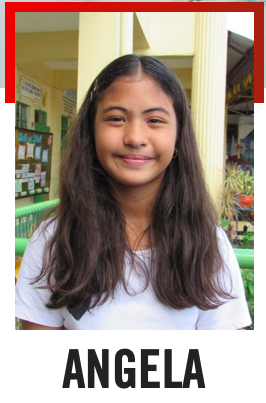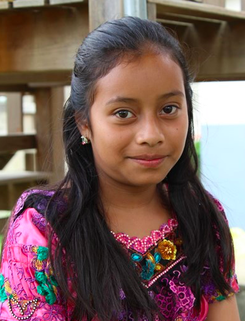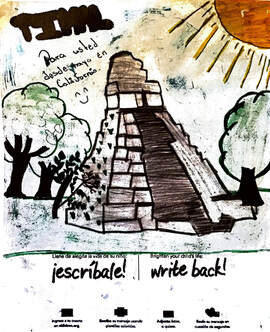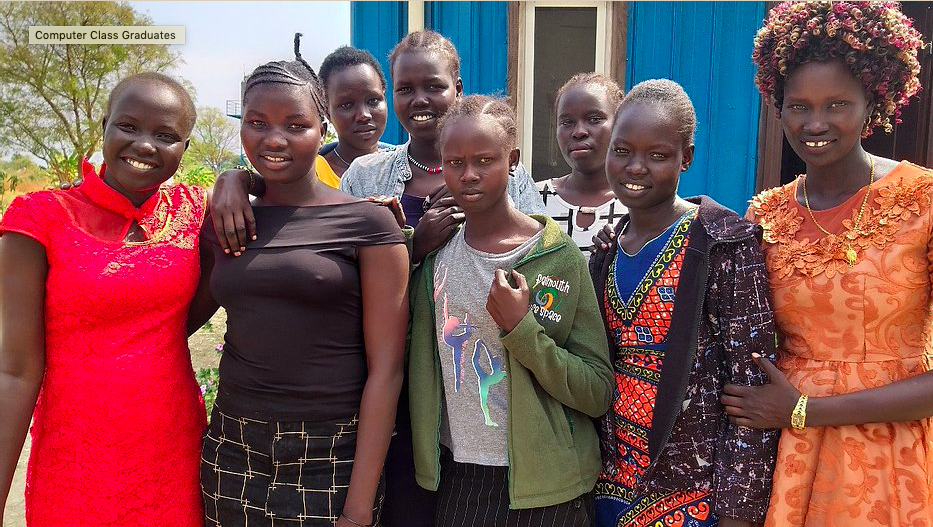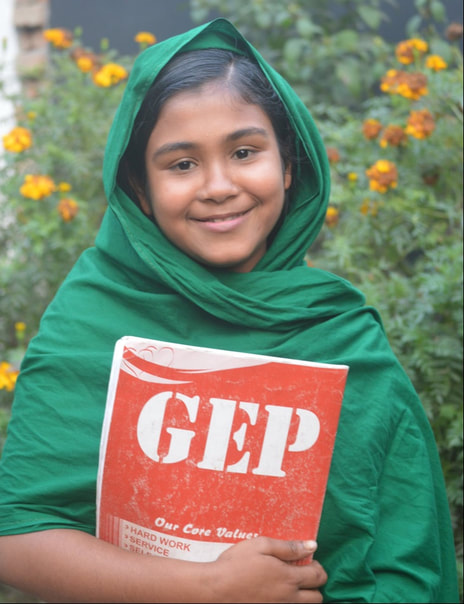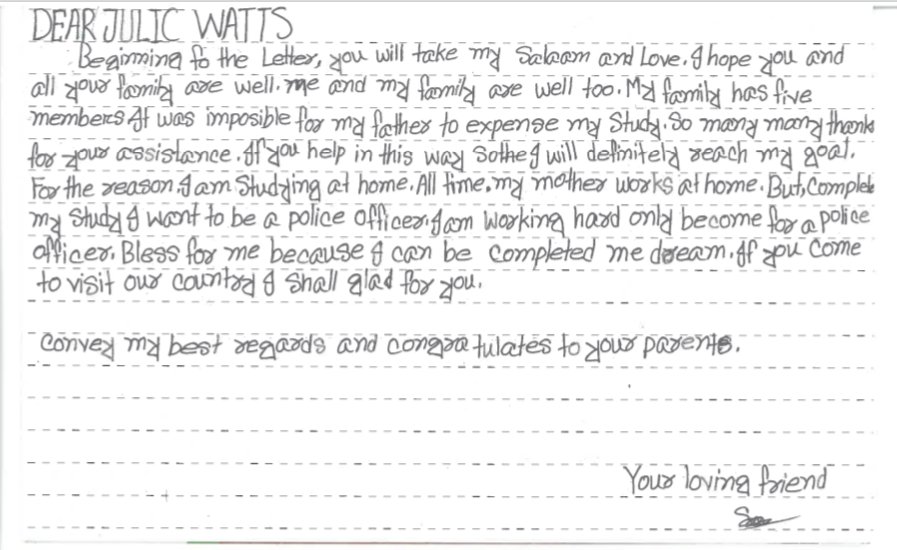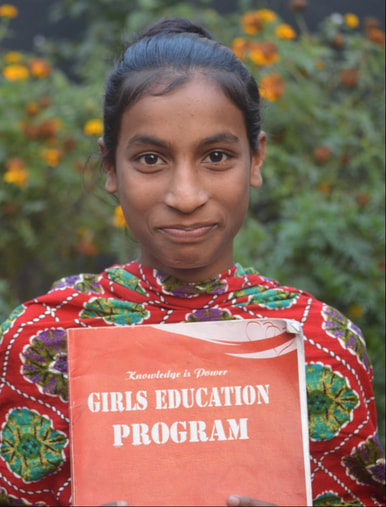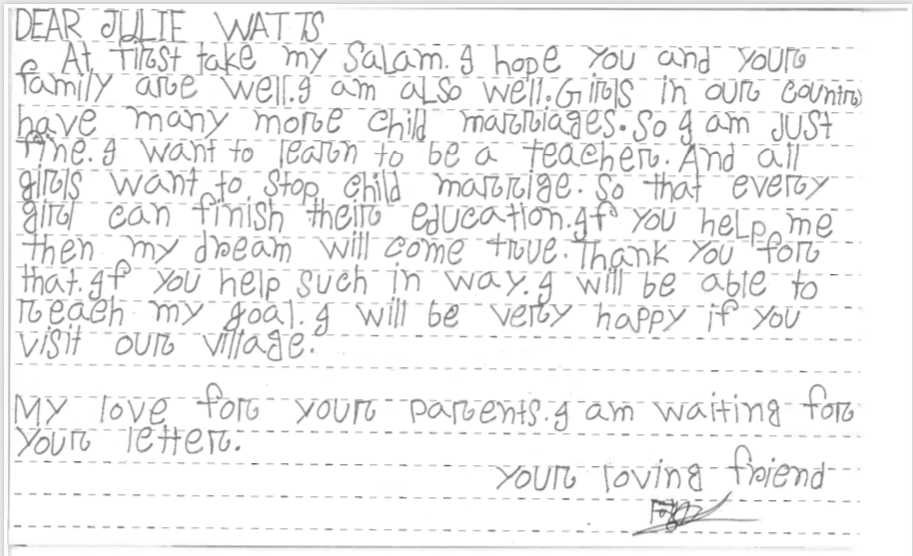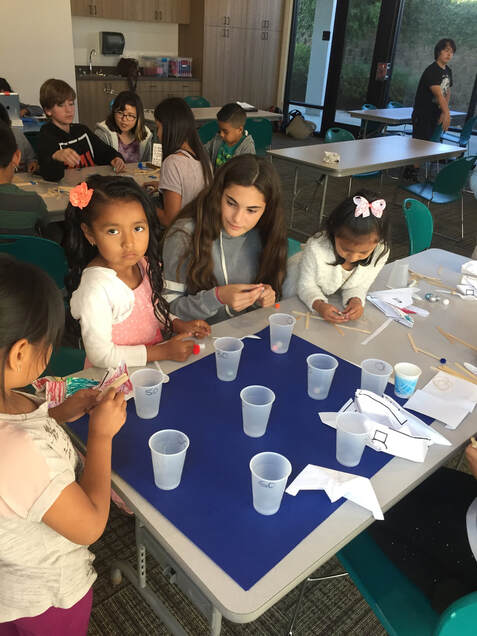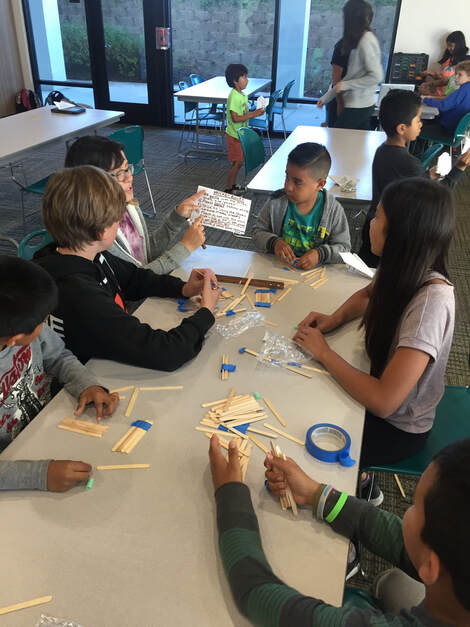The Rhoades School Girl Rising is a group of middle school students who believe that change toward gender equality must begin with education. Once a girl is educated, she can say no to child marriage, say no to being held back, and say yes to her dreams.
|
The Reality
65 million girls in underdeveloped countries are not in school. It may be too dangerous or too expensive, or against tradition, or they may have to work instead. In a world where freedom hinges on literacy, these girls have all of their basic human rights taken away. |
Our Change
We are raising funds for scholarships so that these girls can be in a classroom. We also want more people to understand the game-changing potential of girls' education. The Rhoades School Girl Rising Club plans bake sales, speaker events, online fundraisers, and our yearly bazaar to further our mission. |
The Girl Rising Club sponsors girls' education through several organizations including: She's the First, Save the Children, Casa de Amistad, Speak Up for the Poor, and Children International. Our sponsorships provide tuition, housing, uniforms, books, health care and mentoring. These girls will be the first women in their families to receive a full education.
Rhoades Students Zoom with Students in Bangladesh
On Monday, January 11, 2021, twenty-eight Rhoades middle school students met with students in Bangladesh over Zoom. The Girl Rising Club partners with a non-profit organization called Speak Up for the Poor that provides educational opportunities for hundreds of girls in Bangladesh. On the Zoom, we met with high school girls, who live together in a dormitory, where they can safely pursue their education and not be forced into childhood marriages. Close to 20 girls crowded into the director’s office, to speak with Rhoades students who Zoomed in from their homes. It was 6pm our time and early morning in Bangladesh. The Bangladeshi girls shared their dreams, hobbies, typical school day, and what life would be like for them if they were not in school. Rhoades students asked some insightful questions and were invited to share their dreams with the girls in Bangladesh. Below are student reflections on the Zoom:
Sebastian, in 6th grade, had this to say about the discussion: “I feel child marriage can be solved by changing society’s point of view on girls in Bangladesh. And, I think these girls understand that too because of the dreams they shared of wanting to become doctors, nurses and teachers. These jobs are VITAL to society, and when people can say ‘hey, a girl just saved my life’ that can help end discrimination and childhood marriage. These girls still need help though and Speak Up for the Poor is a great cause.”
Truman, in 7th grade, reflected, “I found it interesting how these girls live in dorms, without their families. I saw how much more I have in comparison to them, which made me grateful for all that I have. It also showed that there is hope for these girls and they can go to school and have a good job without being forced into child marriage.”
Genevieve, in 6th grade, commented, “The girls seemed very grateful that they got the opportunity to study and get a good education. It is so inspiring to see how they work so hard to make their dreams come true.”
Audrey, in 8th grade, shared, “What struck me most was how similar those girls are to me. When I saw them laughing with each other, it reminded me of myself and my friends, and how these girls deserve to be given the same opportunities for their education as I do. Women are capable of so much more than marriage and caring for a family, and a proper education can help anyone reach their full potential. I’m so glad that our school is supporting an important organization like this one, and I hope that we can continue to do so in the future.”
And, Ava, in 7th grade, wrote, “Meeting these girls in Bangladesh, and learning about their dreams and wishes for the future, was eye opening and heart warming. We really do need more girls in the world with such bright minds and joyous personalities like these amazing young women. I am so thankful to have had an opportunity to meet them.
The Zoom was full of laughs, smiles, and appreciation among young people on opposite sides of the world. To learn more about Speak Up for the Poor visit https://www.speakupforthepoor.org.
On Monday, January 11, 2021, twenty-eight Rhoades middle school students met with students in Bangladesh over Zoom. The Girl Rising Club partners with a non-profit organization called Speak Up for the Poor that provides educational opportunities for hundreds of girls in Bangladesh. On the Zoom, we met with high school girls, who live together in a dormitory, where they can safely pursue their education and not be forced into childhood marriages. Close to 20 girls crowded into the director’s office, to speak with Rhoades students who Zoomed in from their homes. It was 6pm our time and early morning in Bangladesh. The Bangladeshi girls shared their dreams, hobbies, typical school day, and what life would be like for them if they were not in school. Rhoades students asked some insightful questions and were invited to share their dreams with the girls in Bangladesh. Below are student reflections on the Zoom:
Sebastian, in 6th grade, had this to say about the discussion: “I feel child marriage can be solved by changing society’s point of view on girls in Bangladesh. And, I think these girls understand that too because of the dreams they shared of wanting to become doctors, nurses and teachers. These jobs are VITAL to society, and when people can say ‘hey, a girl just saved my life’ that can help end discrimination and childhood marriage. These girls still need help though and Speak Up for the Poor is a great cause.”
Truman, in 7th grade, reflected, “I found it interesting how these girls live in dorms, without their families. I saw how much more I have in comparison to them, which made me grateful for all that I have. It also showed that there is hope for these girls and they can go to school and have a good job without being forced into child marriage.”
Genevieve, in 6th grade, commented, “The girls seemed very grateful that they got the opportunity to study and get a good education. It is so inspiring to see how they work so hard to make their dreams come true.”
Audrey, in 8th grade, shared, “What struck me most was how similar those girls are to me. When I saw them laughing with each other, it reminded me of myself and my friends, and how these girls deserve to be given the same opportunities for their education as I do. Women are capable of so much more than marriage and caring for a family, and a proper education can help anyone reach their full potential. I’m so glad that our school is supporting an important organization like this one, and I hope that we can continue to do so in the future.”
And, Ava, in 7th grade, wrote, “Meeting these girls in Bangladesh, and learning about their dreams and wishes for the future, was eye opening and heart warming. We really do need more girls in the world with such bright minds and joyous personalities like these amazing young women. I am so thankful to have had an opportunity to meet them.
The Zoom was full of laughs, smiles, and appreciation among young people on opposite sides of the world. To learn more about Speak Up for the Poor visit https://www.speakupforthepoor.org.
|
Meet Angela from the Philippines. Angela is 12 years old. She speaks Tagalog and is in elementary school. Angela wants to be a doctor when she grows up. Angela lives near Manila, the capital. Girl Rising sponsors Angela's education through Save the Children.
|
|
Meet Sonia from Guatemala. Sonia is thirteen and lives with her mom, dad and two siblings. She likes singing and drawing. Sonia's favorite subject in school is English and she would like to be a teacher one day. Sonia lives in a two bedroom, concrete block house with an outdoor fireplace and latrine. She sent us this drawing last year. Girl Rising sponsors Sonia's education through Children International.
|
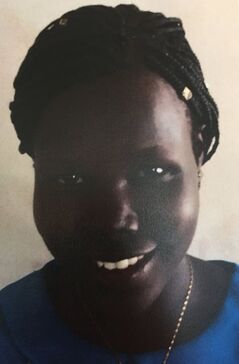
Meet Stellah from South Sudan. Stellah is part of Project Education South Sudan. She is in the 11th grade at Greenbelt Academy Secondary School. She says her school has strong and supportive teachers. Stellah is proud of her improvement in school and she is working hard to keep up her good grades.
Stellah recently wrote to us about the representation of women in her community. She wrote, "Mostly in Bor, women need to be recognized in the communities because men don’t understand what women are saying. Their voices of concern and support need to be considered so they do not consider women as weak. Nowadays we need to treat people equally because women are also educated and they don’t fear to express themselves in front of everyone. Not only that but also at the community level and in national government level, the voice of women should not be oppressed by male leaders." Girl Rising sponsors Stellah through She's the First. |
Project Education South Sudan's high school graduates, who are taking a vocational computer class. |
Meet Shimu and Fatema. Both Shimu and Fatema live in the same village, called Baduria in Bangladesh. Fatema is in 6th grade, and her dream is to be a teacher. Shimu is in 7th grade, and her dream is to be a police officer. See letters below from Shimu and Fatema. Girl Rising supports Speak Up for the Poor in Bangladesh. Their Girls' Education Program empowers girls by keeping them in school. By providing an education, we can break the cycle of poverty and child marriage and get girls onto the path to success. Working with families and communities, we can build a new understanding of the potential for educated girls, and help transform the way entire regions think about girls. We believe that educating and empowering girls in poverty is the best investment anyone can make to fight injustice and poverty. Below are letters from Shimu and Fatema. |
Sacred Valley Project in Peru
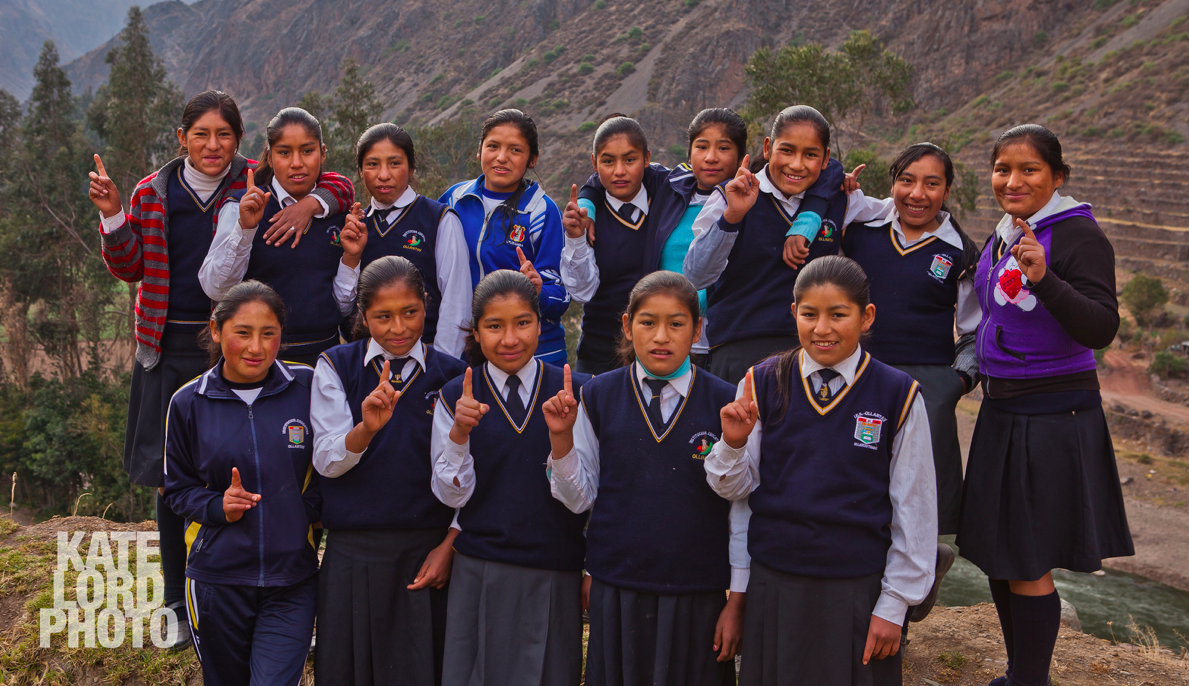
Girl Rising supports a group of students through She's the First who partners with the Sacred Valley Project in Peru. In Peru, indigenous communities are dispersed throughout the Andes Mountains and lack access to many public services, including education. Children must walk several hours to the nearest elementary school and high schools are often only located in larger town centers, making it too far a journey for daily commute on foot. This lack of access to education presents an even greater challenge for indigenous girls. While many boys move to urban centers to pursue educational opportunities, this same option is not available to most girls. The Sacred Valley Project builds dormitories and education centers for marginalized girls of the Sacred Valley, provides access to public schools, health education, private tutoring, and well-balanced meals.
One of the girls in the Sacred Valley Project, Ruth, is a high school student at Agropecuaria de Calca. While Ruth says she did not know anyone when first starting out in school, she continues to grow her friendship circle. Of her ultimate dream, Ruth says: "I want to be a professional, and I will do my best to achieve my goal.” Ruth is from Parcco, where she lives with her mother Zaida, her father Romulo, and her younger brother. She currently lives in a dorm at school and she loves to study communications. In her free time, she likes to play soccer and volleyball.
.
One of the girls in the Sacred Valley Project, Ruth, is a high school student at Agropecuaria de Calca. While Ruth says she did not know anyone when first starting out in school, she continues to grow her friendship circle. Of her ultimate dream, Ruth says: "I want to be a professional, and I will do my best to achieve my goal.” Ruth is from Parcco, where she lives with her mother Zaida, her father Romulo, and her younger brother. She currently lives in a dorm at school and she loves to study communications. In her free time, she likes to play soccer and volleyball.
.
Girl Rising sponsors students at Casa de Amistad, an after school tutoring program for students in Solana Beach and Encinitas. Rhoades middle school students volunteer once a month at Casa in the Technology Club. Casa de Amistad is dedicated to fostering the education and character development of underserved children, teens and their families.
